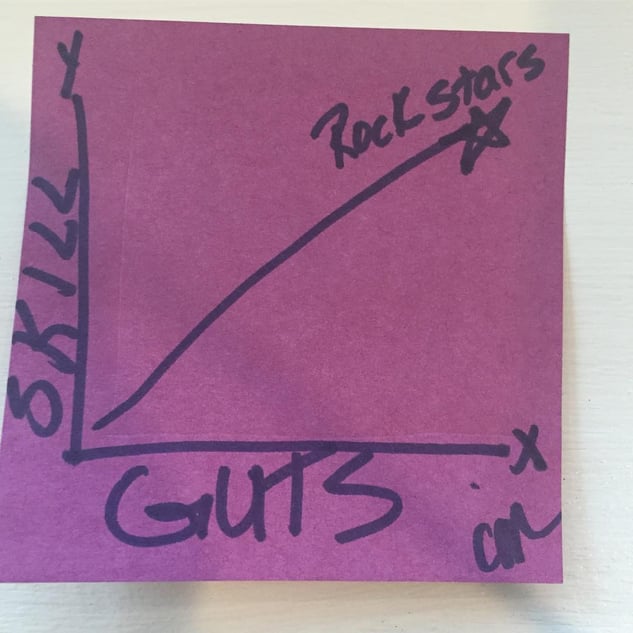You've probably heard of the acronym S M A R T to use when setting goals. How does "Don't Look Down" affect SMART?
Most people get the "S", but struggle with the rest of the letters.
It's not my intention to talk about SMART goals. Rather, I'll share what I look for and the science behind it.
Have you ever read about Thomas Edison's failures? How about Abraham Lincoln's?
Read about fear in babies. Babies have a fear of falling, thus the title, "Don't Look Down", but when you're on a call with your manager and coach doing a goal setting exercise, don't you hear a little voice in the back of your mind asking, "What if you fail?" Fear of failure is the adult version of fear of falling (unless of course we're on a tightrope between two skyscrapers.) So, we need to understand this fear and we can't just tell our salesperson to ignore it. We have to give them a safety net that will save them if they need saving, but that's actually the second step in a goal setting exercise. The first is one of the "M's" in SMART.
Think about these goals.
I'm not after $100-200K/year. I want one $10M hit.
"Can I grow to $1,000,000 in 12 months?" in an industry where 80% of the firms are under $100K?
Last week I heard someone say they wanted 1,000,000 users in ten years.
Think about these three examples relative to SMART. Specific? Absolutely. Measurable? Absolutely.The "A" words? The "R" words? eh.... "T"? OK.
Read about resistance to change. Fear of the unknown is like fear of falling or failing? What happens if? Some may even fear succeeding thinking that success will bring it's own set of problems.
Enough about fear. The other big killer is the amount of effort required to change. a² + b² = c² will always be true unless the value of a, b or c is changed. Your salesperson has skills, guts and behavior and the combination gets their results. Your salesperson may realize that in order to get different results they need to change something. Get some skills training? Develop guts? Work harder (more behavior)?
Carole's post-it note gives a visual.

Change is hard especially when you're dealing with well established habits, self-limiting beliefs or deeply engrained fears. If the rep's goal is not personally meaningful, they will not have the strength to change. They'll look for the easy way, or if the going gets really tough, they'll just surrender to failure. Like what happened in the second to the last paragraph in this post.
I hope this helps. Getting your rep started is not a 5 minute thing. You need to understand it's more than their quota. Even if they succeeded at their last job, why are they here.
Do a good job with this piece, then develop a plan, figure out what obstacles and challenges might arise, address the challenges, monitor, debrief, ask, etc,
Learn more about The Science of Helping Good Salespeople to be Great.



